The Best Roland JUNO Alternatives for Classic 1980s Sounds
Hardware synths with a touch of Juno.
Launched way back in 1982, the Roland Juno series remains one of the most popular designs ever created. We’re taking a look at some of its modern recreations to find ways of reliving and reinventing the glory of the original.
We’ve discussed Juno-style plug-ins previously, but now we’ll be checking out a range of hardware clones that can reproduce the sounds from the classic Juno series and beyond.
The Best Roland Juno Alternatives
Perhaps you want a full keyboard version, or you only have space for a module. Either way, there are options available and you’ll be pleasantly surprised at how good they sound.
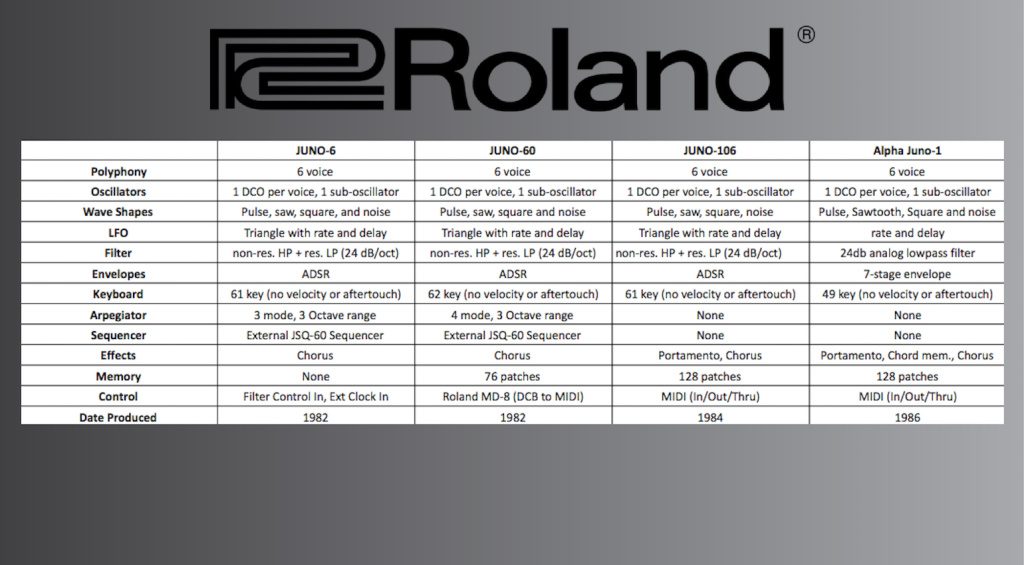
In their own way, each recreation brings the classic back to life with its own approach. While the original Junos had the option of their respective JSQ or MSQ sequencers, some of the synths we’re looking at have their own integrated sequencers.
The selection we’ve chosen ranges across various price points too, so there should be something for everyone.
Roland AIRA Compact J-6
The Roland J-6 from Roland’s portable AIRA Compact series uses a 4-voice Juno-60 Synth Engine created with the ACB modeling technology. Although the synthesis controls are very basic, you can still produce some quite convincing Juno sounds.
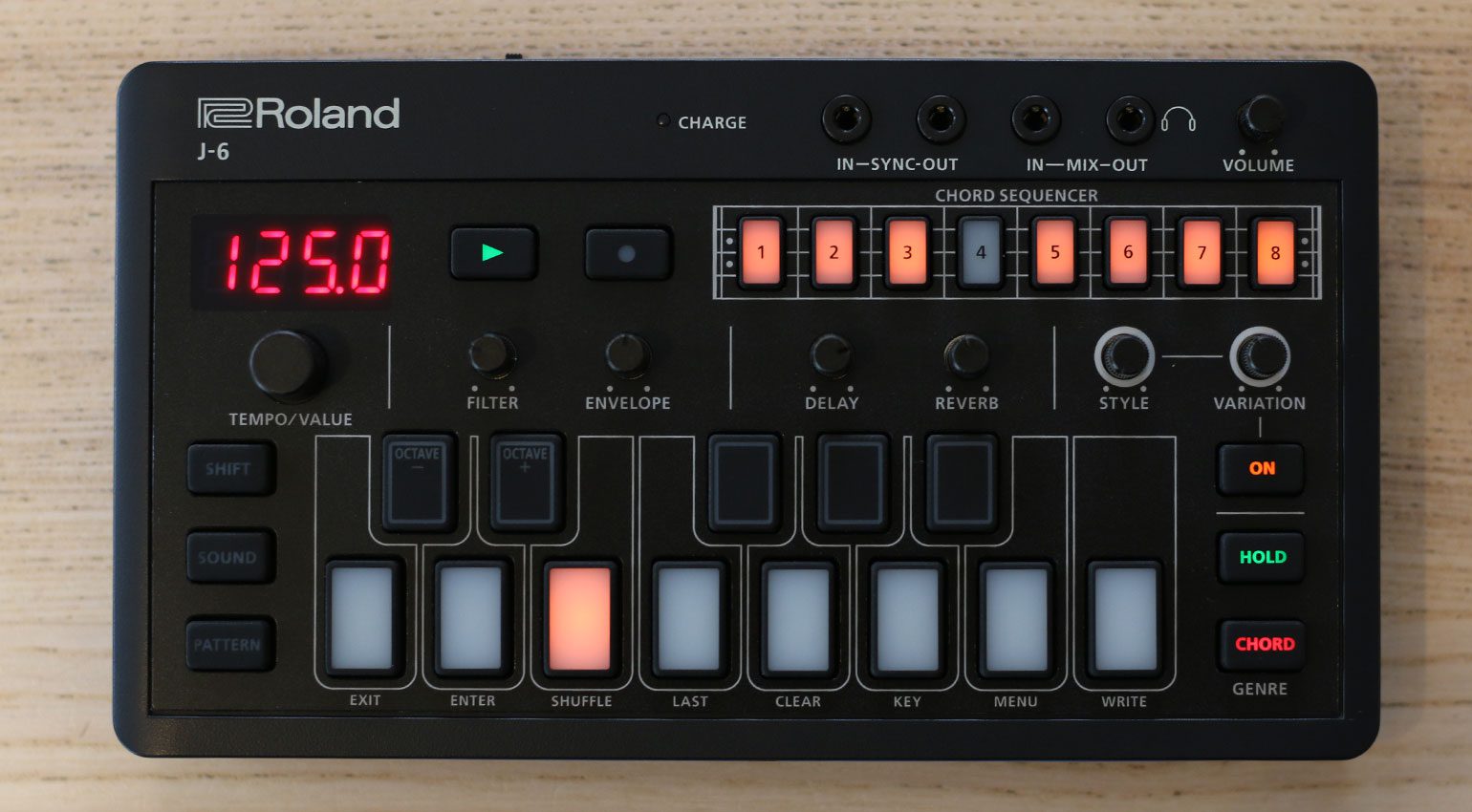
Besides that, the chord sequencer is really impressive, and it can also be used to sequence other hardware or software instruments.
You get different ways to phrase your chords with 9 styles each with 12 different variations. What’s more, the lithium-ion battery provides up to 3 and a half hours of use.

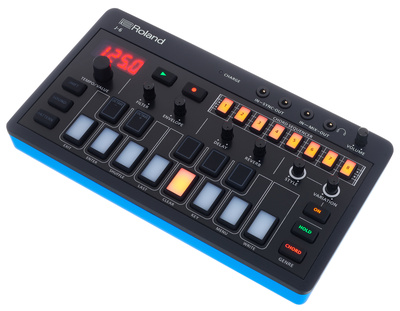
Roland JU-06A
In the bite-sized Boutique series, the Roland JU-06A provides a function that allows you to switch between Juno-60 and Juno-106 modes.
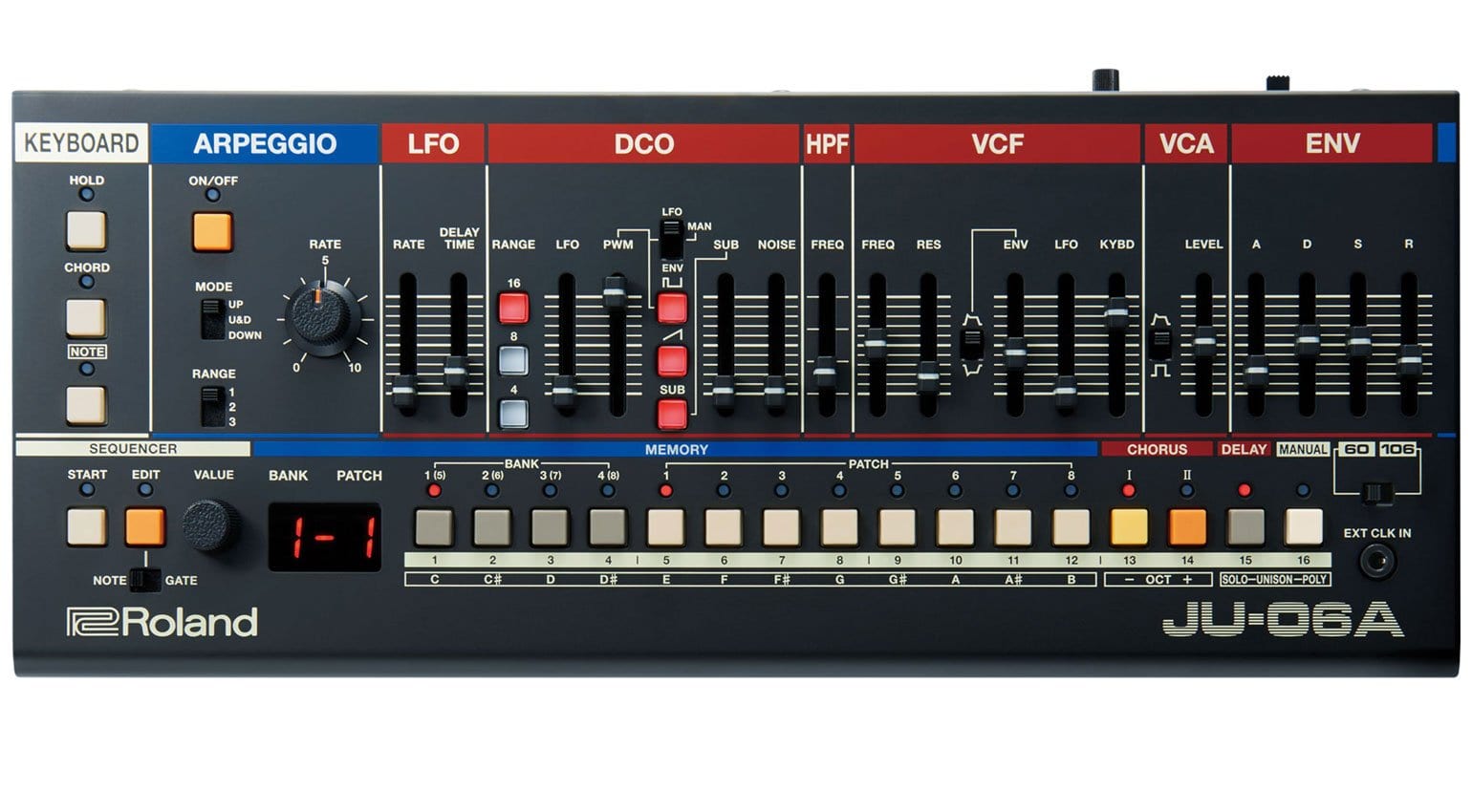
The 4-voice ACB synth engine gives you all the features you’d expect in a Juno module. These include the static HPF and resonant LPF and the classic Juno chorus, along with a 16-step pattern sequencer and arpeggiator.
In addition, the JU-06A also acts as an audio interface and provides MIDI I/O as well as analogue clock sync. This makes it great for linking it with other gear.
- More from Roland

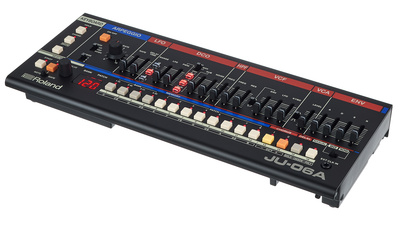
Dreadbox Nymphes
If you have to have something analogue, the Dreadbox Nymphes is a 6-voice module that offers 6 different playing modes including Poly, Uni, Tri, Duo, Mono, and Chord.
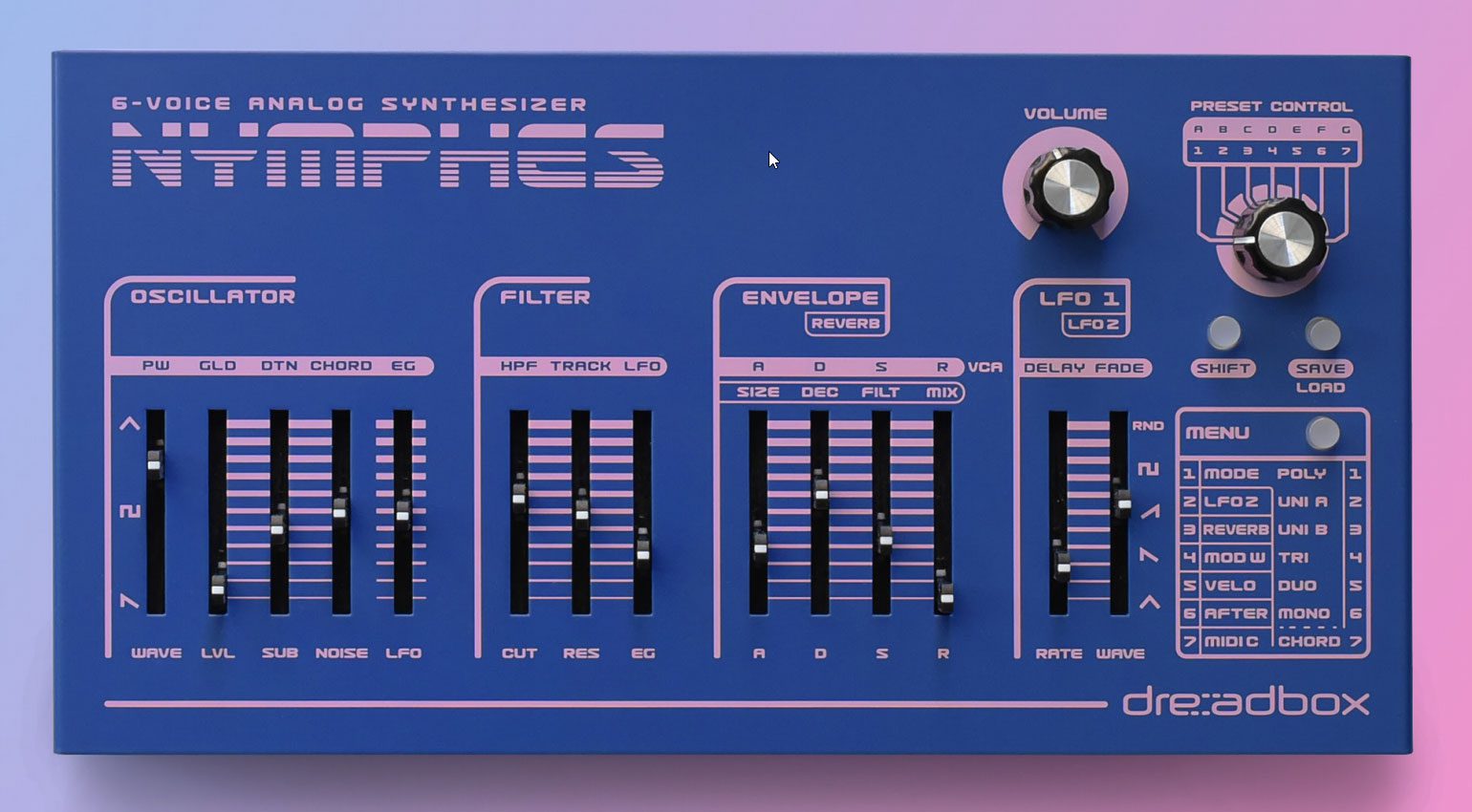
It also offers one LFO per voice fixed to pitch and filter cutoff and another assignable LFO, along with 2 envelopes and reverb.
The control interface is extremely compact, but once you’ve familiarized yourself it’s easy enough to create your own unique Juno sounds.
- More from Dreadbox

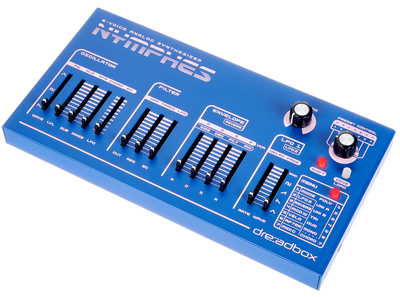
Behringer Deepmind-6
The Behringer Deepmind-6 is a great analogue Juno recreation. However, it goes beyond the original with features that provide even more control of your sound.
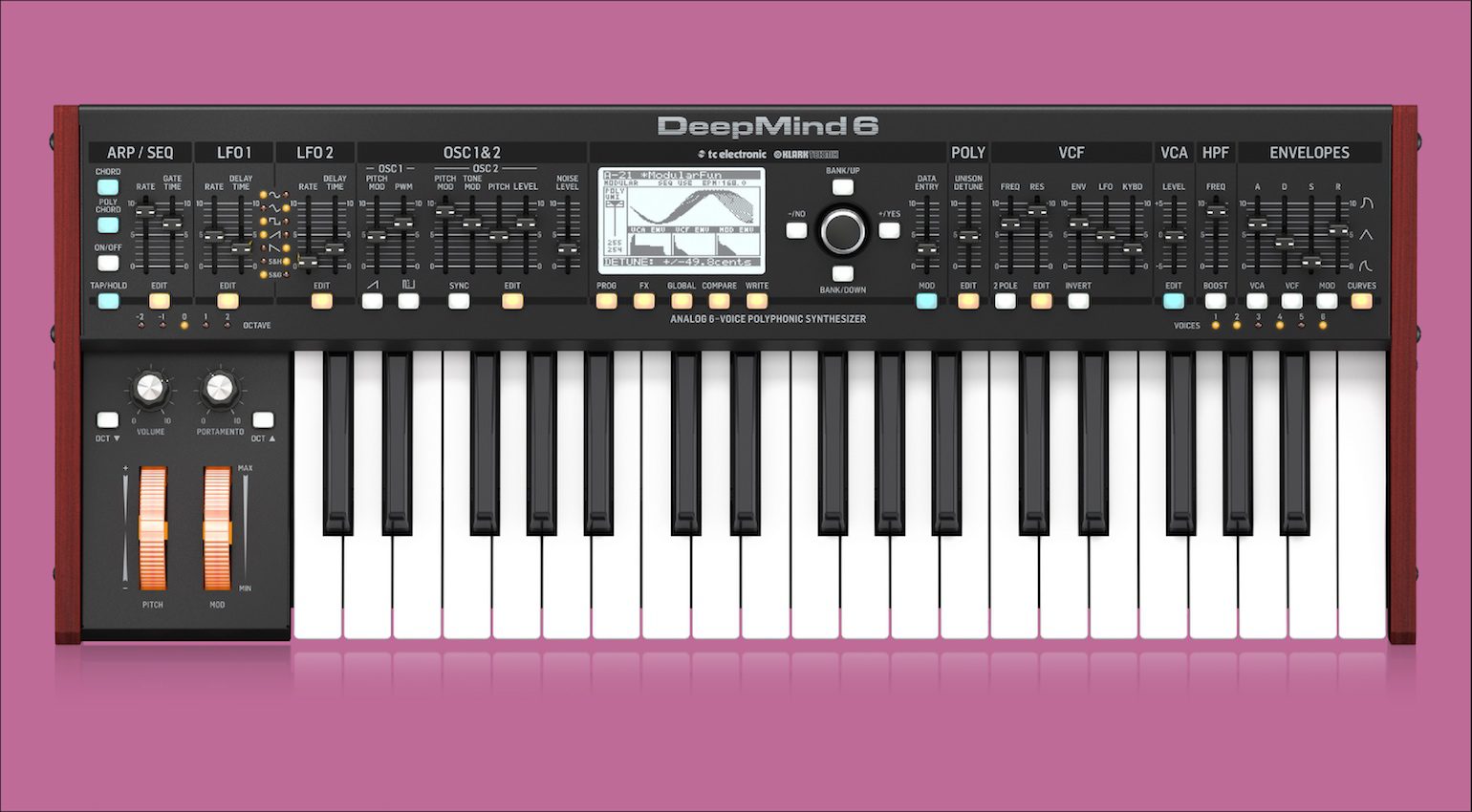
The 37-key keybed has aftertouch and the 12 total oscillators give you 2 OSCs and LFOs per voice. In addition, there are four effects engines, 3 envelopes, an 8-channel mod matrix, and a 32-step control sequencer.
So overall, the Deepmind can produce Juno-style sonics, but it has the potential to create even more expressive and animated sounds too.
- More from Behringer

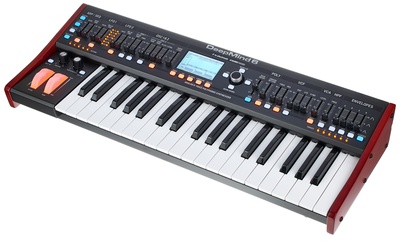

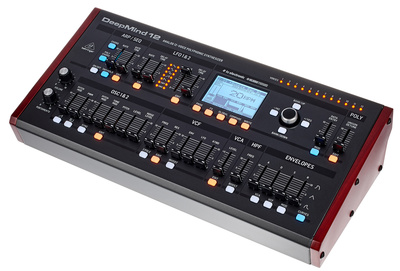

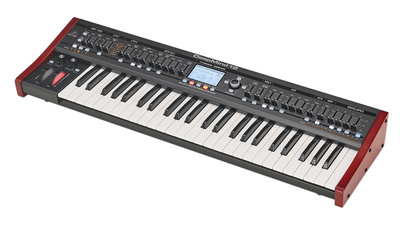
Roland Juno-X
Relatively new on the market, the Roland Juno-X gives you more of a workstation approach with Juno-60 and Juno-106 modeling. The ZEN-Core Sound Engine provides multitimbrality, with 4 synth parts and a rhythm part.
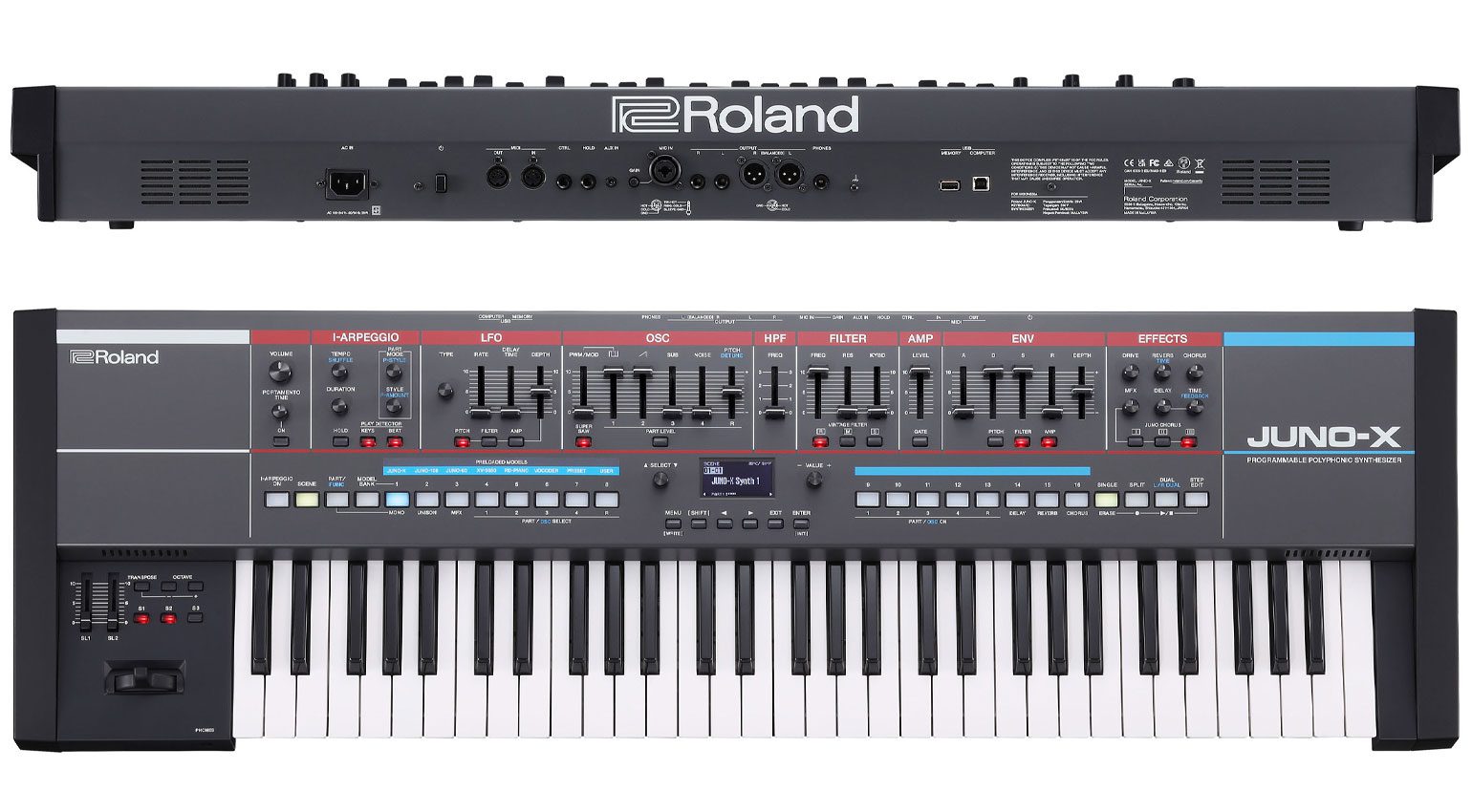
Besides the classic wave shapes, the Juno-X also has additions like Super Saw, and a Chorus III effect. Furthermore, there are 90 different effect types you can add to individual parts and compressor, EQ, reverb, delay, and chorus as global effects.
The sound library provides 4000 preset sounds and over 90 drum kits with sounds from XV-5080, RD-series pianos, and more.
- Read about the JUNO-106

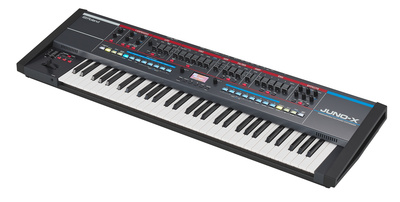
Another way to create Juno-style sounds is simply by adding the famous Juno chorus effect to one of your existing synths. For example, the TC Electronic JUNE-60 Chorus V2 provides a relatively affordable way of doing this with both mono and stereo operating modes.
An honourable mention must go to the Roland System-8, which provides a versatile platform to access and create classic sounds with Roland’s PLUG-OUT technology.

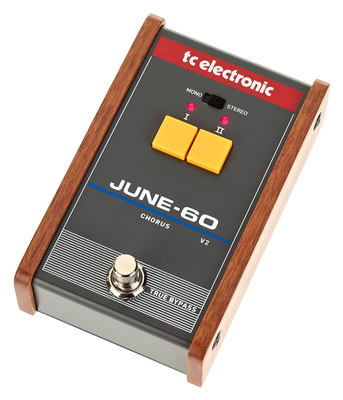

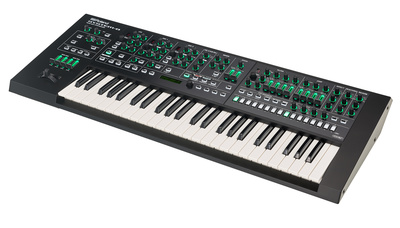
More about the Best Roland Juno Alternatives:
- Recreating the Juno sound with software plug-ins
- Classic Gear: The Roland JUNO-106
- The History of Roland Synthesizers
- Everything vintage
Videos:
*Note: This article contains affiliate links that help us fund our site. Don’t worry: the price for you always stays the same! If you buy something through these links, we will receive a small commission. Thank you for your support!
5 responses to “The Best Roland JUNO Alternatives for Classic 1980s Sounds”

You are currently viewing a placeholder content from Facebook. To access the actual content, click the button below. Please note that doing so will share data with third-party providers.
More InformationYou are currently viewing a placeholder content from Instagram. To access the actual content, click the button below. Please note that doing so will share data with third-party providers.
More InformationYou are currently viewing a placeholder content from X. To access the actual content, click the button below. Please note that doing so will share data with third-party providers.
More Information
 4,0 / 5,0 |
4,0 / 5,0 | 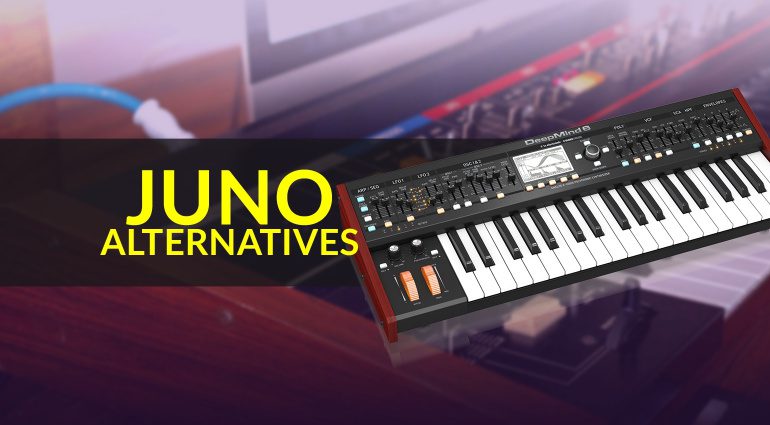


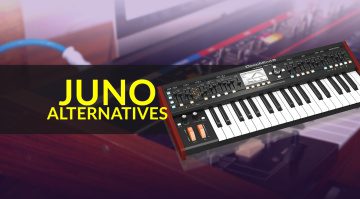

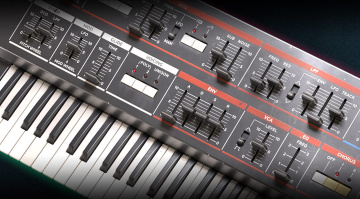
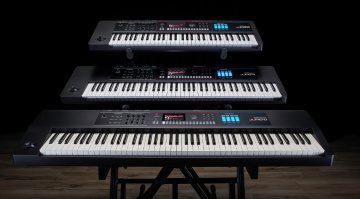
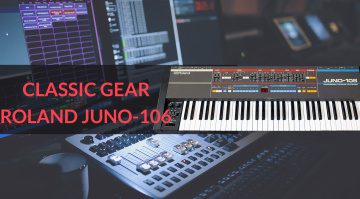
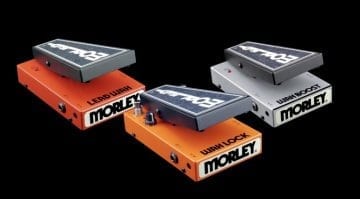
The Behringer DM12 is honestly the truth, I have it for years, and it suprises me always again and again. Equipt with modern extensions, this is a true comfortable sucessor of the Juno. But Roland is riding thier digital technology,
Agree. The Deepmind’s great. A future classic. The FX, control sequencer and mod matrix make up for the limited osc shapes. A lot of thought went into it, it being Behringer’s first synth
Personally, I can’t wait for the Behringer Neptune 80, which is supposed to be a recreation of the Juno 60 if I’m not mistaken.
On the software/VST side, I love U-He Diva for this, although it’s much deeper than is needed. The TAL one is the one I end up using the most because of that reason.
But Roland offers several, as does Arturia. The Cherry Audio one, I haven’t tried. Is that any good?
Neptune will be the Jupiter 8. And the two best VST aside from TAL, are the Cherry DC 106, which when Oversampling is enabled is extremely close to the real thing, and then Roland’s own plugin, which is pretty much 1:1, however the ACB Roland plugins see a little starved of dynamics in the audio and sound a little over EQ’d, but can be cured with some EQing and Expansion, and honestly even the Cherry I tame down. In reality though, DIVA or TAL will both do it extremely well. TAL is just an extremely good approximation, and DIVA has its filters and voices, while having just abiut every other voice and filter, so you can tailor as you see fit.
With all my synths though, I use OP-X Pro 3 for just about everything (interface is a bear but it blows everything away in audio quality), and TAL Sampler for the sample stuff. I these two are my desert island synths. And if I had to just live with TAL, the UN-O it is, and I would be happy.
The JURA plugin on the Akai MPC is quite nice. I have it on the MPC Key 37. Also have the Deepmind 6.